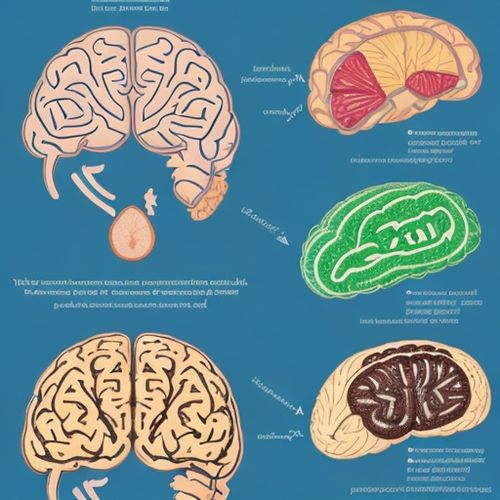In recent years, the debate over the optimal diet for health and longevity has intensified, with growing evidence suggesting that plant-based diets may offer significant benefits. A landmark study from the University of Sydney published in *Nature Communications* has added substantial weight to this argument, revealing that plant-based protein intake is associated with longer life spans.
The Sydney Study: Plant-Based Proteins and Longevity
The study conducted by researchers at the University of Sydney's Charles Perkins Centre analyzed food supply and demographic data from 101 countries over a 60-year period (1961–2018). The research team examined the availability of plant-based and animal-based proteins and their correlation with age-specific mortality rates.
Key Findings
1. Plant-Based Proteins and Adult Longevity: The study found that countries with higher availability of plant-based proteins, such as chickpeas, tofu, and peas, had longer adult life expectancies. For example, India, where plant-based proteins are more prevalent, outperformed countries with meat-heavy diets, like the U.S., in terms of adult longevity.
2. Animal-Based Proteins and Infant Mortality: Interestingly, the study revealed that animal-based proteins, such as meat, eggs, and dairy, were associated with lower infant mortality rates. However, this benefit did not extend to adult life expectancy.
3. Chronic Disease Risk: High consumption of animal-based proteins, particularly processed meats, has long been linked to chronic conditions like cardiovascular disease, type 2 diabetes, and certain cancers. In contrast, plant-based proteins are associated with lower risks of these chronic diseases and overall mortality rates.
The Science Behind Plant-Based Proteins
Plant-based proteins, including legumes, nuts, and whole grains, offer several health benefits. These foods are rich in fiber, vitamins, minerals, and other nutrients that support overall health. For example, a 100-gram serving of tofu contains 9.4 grams of protein, while tempeh, a fermented soy product, contains about 20 grams of protein. These plant-based sources not only provide essential amino acids but also contribute to a balanced diet without the saturated fats and cholesterol found in animal proteins.
Longevity Hotspots: The Role of Plant-Based Diets
Some of the world's longest-lived populations, such as those in Okinawa, Japan; Ikaria, Greece; and Loma Linda, California, rely heavily on plant-based diets. These communities often consume a variety of plant-based proteins, including beans, lentils, and whole grains, which are associated with lower risks of chronic diseases and longer life spans.
Practical Implications and Recommendations
Switching to a plant-based diet does not mean completely eliminating animal proteins. Instead, it involves increasing the proportion of plant-based proteins in one's diet. Here are some practical steps:
1. Incorporate More Legumes and Whole Grains: Foods like chickpeas, lentils, quinoa, and brown rice are excellent sources of plant-based protein.
2. Choose Plant-Based Oils: Replacing animal fats with plant-based oils like olive oil can also contribute to better health outcomes.
3. Diversify Protein Sources: Include a variety of plant-based proteins in your diet to ensure you get all the essential amino acids. For example, combining beans with rice or lentils with whole grains can provide a complete protein profile.
4. Mindful Meat Consumption: If you choose to consume animal proteins, opt for lean meats and limit processed meats. Consider reducing portion sizes and frequency.
The Broader Impact: Health and Sustainability
The benefits of plant-based diets extend beyond individual health. Environmentally, plant-based diets require fewer resources and produce fewer greenhouse gases compared to animal-based diets. As the world grapples with climate change and sustainability challenges, shifting towards plant-based diets can contribute to a healthier planet.
The evidence is clear: plant-based proteins are associated with longer life spans and reduced risks of chronic diseases. While animal proteins play a role in early childhood development, plant-based proteins offer significant health benefits for adults. By incorporating more plant-based proteins into our diets, we can improve our health, reduce the risk of chronic diseases, and contribute to a more sustainable future. Whether you choose to go fully plant-based or simply increase your plant protein intake, the benefits are undeniable.

By Lily Simpson/Apr 23, 2025

By Lily Simpson/Apr 23, 2025

By George Bailey/Apr 23, 2025

By Ryan Martin/Apr 23, 2025

By David Anderson/Apr 23, 2025

By Victoria Gonzalez/Apr 23, 2025

By Benjamin Evans/Apr 23, 2025

By Christopher Harris/Apr 23, 2025

By Olivia Reed/Apr 23, 2025

By Emma Thompson/Apr 23, 2025

By John Smith/Apr 23, 2025

By Emily Johnson/Apr 22, 2025

By Samuel Cooper/Apr 22, 2025

By Olivia Reed/Apr 22, 2025

By Sophia Lewis/Apr 22, 2025